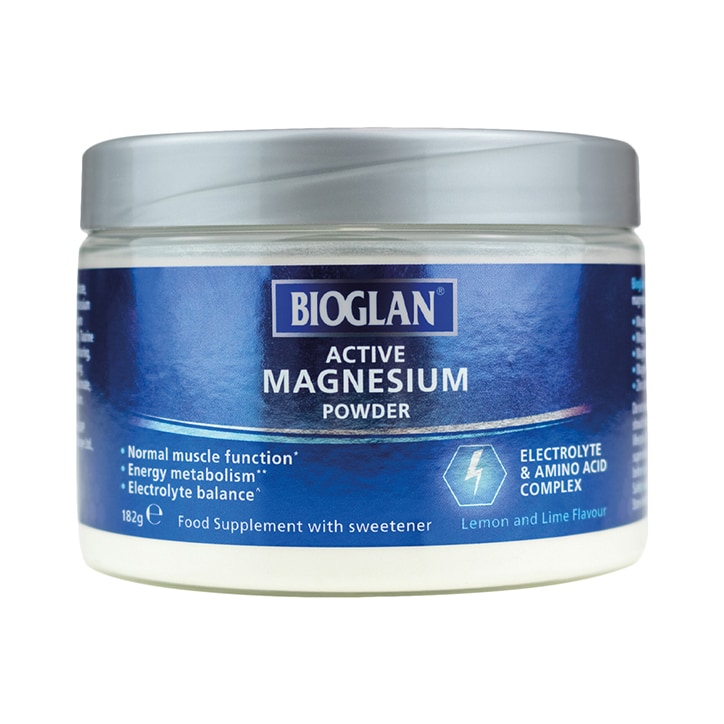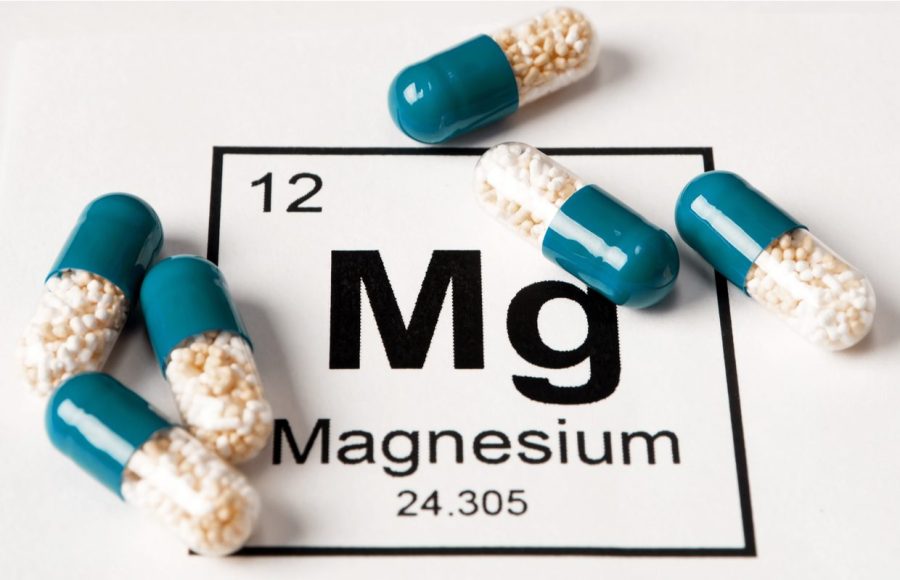A mineral a day keeps stress at bay! Magnesium can boost your ability to cope better with stress, but how much do you need per day – and are all supplements created equal? Here’s what you need to know about the link between magnesium supplements and stress relief…
Words: Katy Sunnassee | Images: Shutterstock
You’ve no doubt heard about the wonders of fish oil for brain and heart health, and the importance of vitamin C when it comes to protecting the immune system. However, what about making sure your magnesium levels are topped up through foods or supplements to help with stress relief?
‘Many nutritionists refer to magnesium as nature’s sedative. This is possibly because it plays an important role in the nervous system and helps to relax and unwind tension from muscles,’ says Susie Debice, a food scientist and nutritionist. Whether your stress is from financial worries, family woes, a demanding work schedule or all of these, it all takes a toll on the nervous system. This is where magnesium comes in.
Is magnesium important for stress relief?
Magnesium is an often overlooked yet vital mineral, which is involved in more than 300 enzyme reactions in the body, including supporting the nervous system, psychological function and muscle function. ‘Without adequate magnesium, minerals such as calcium tend to exert more of an impact on the body. Whereas magnesium helps relax and unwind the nervous system and muscles, calcium tends to contract and constrict. And when stress is running at a high level, we draw upon magnesium reserves to constantly counterbalance and dampen down the stress response,’ says Susie.
Magnesium supports the actions of gamma-aminobutyric acid (GABA). This is a neurotransmitter that has a calming and relaxing effect in the body. A deficiency in magnesium has been linked with anxiety. This is because it’s one of the essential nutrients, along with zinc and vitamin B6, required for neurotransmitter production.
Despite magnesium’s wide-ranging benefits, it is estimated that as many as 50 percent of people get less than the recommended 350-400mg needed per day. Waking through the night is a sign of a magnesium deficiency, as well as irritability, anxiety and depression. Plus, these are all factors in how well we are able to handle stress.
Magnesium intake: food versus supplements
If you feel you could do with topping up your magnesium levels, take a look at your diet. ‘Foods rich in magnesium include green leafy vegetables, nuts and seeds. So, if stress is on your horizon then it’s best to get these foods on your daily menu,’ suggests Susie. While sourcing magnesium from food is a good start, it can’t be obtained in the quantities needed for most people, according to Dr Danielle Crida, a nutritionist and GMC registered doctor.
‘Several features of our modern lifestyle, cooking methods and intensive industrial farming mean we are obtaining less-than-optimal amounts of magnesium from food,’ she says. ‘This is further compounded by several features of the modern lifestyle that inhibit our ability to absorb even the magnesium we do eat. Of the total dietary magnesium consumed, our gut only absorbs about 24-76 per cent. We eliminate the rest in faeces.’
Worryingly, when the body doesn’t obtain sufficient magnesium from the diet, it releases magnesium from the bones. This is why magnesium supplements are often necessary to ensure that you’re receiving the necessary levels of magnesium for stress relief and another health benefits.

Which magnesium supplement is best for stress relief?
There are plenty of magnesium supplements to choose from, though not all are equal. ‘When it comes to supplements, the most important factor is how much of the nutrient we are likely to absorb and then how easily our body can utilise the nutrient,’ says Susie.
There are many factors that affect how well the body absorbs magnesium. It’s not about how much you take, but instead how much you retain. Dr Crida recommends opting for supplements that are free from magnesium oxide and are fully reacted forms of magnesium. ‘Each form has different levels of elemental magnesium, but also different bioavailability,’ she says.
‘This is why what can appear to be high-dose magnesium, like magnesium oxide, which contains 60 per cent elemental magnesium, is not very effective because its bioavailability is only around four per cent. In comparison, magnesium glycinate is only 18 per cent elemental magnesium, but 80 per cent bioavailable.’
For stress relief, Susie suggests looking for supplements that include magnesium lactate, citrate and gluconate. Alternatively, look for the liposomal form of magnesium. These all have a much better rate of absorption and efficacy. ‘The most advanced delivery system for nutrients is liposomal encapsulation technology. This protects it from the action of digestion. It also delivers fast-track absorption into the bloodstream, transporting it to cells where we need it most,’ she says.
How much magnesium do I need per day?
With magnesium supplements, one-a-day dosing doesn’t work as you easily and quickly reach your capacity for absorption. ‘Studies have shown that we absorb a low percentage of large single doses. However, we absorb a large percentage of small doses,’ says Dr Crida. ‘Our nutritionists advise spacing the doses of magnesium apart to ensure you maximise how much you absorb and optimise the benefits from supplementation.’
So remember, less is more when it comes to magnesium dosing. A recommended three times a day should set you on the right path to helping your body find relief from stress as efficiently as possible.
Did you know magnesium can help fuel your workouts? This is because it’s vital for the conversion of muscle glycogen to glucose, your body’s fuel during exercise.
3 high-quality magnesium supplements for stress relief

Igennus Healthcare nutrition Triple Magnesium Complex (£16.99 for 90 capsules) contains a trio of magnesium citrate, bisglycinate and taurate, all in their fully reacted forms. They are also bonded synergistically, which increases absorption rate. It also prevents an upset stomach, which can be a side effect of magnesium oxide.

Take a sachet of Altrient Liposomal Magnesium (£71.99) before bed to help you sleep. It contains liposomal magnesium, which is an advanced form of magnesium with exceptional absorption, surpassing most standard magnesium supplements.

Mix one scoop of Bioglan Active Magnesium powder 182g (£24.99) to water for a lemon and lime-flavoured drink. The magnesium contributes to normal muscle function. It’s also great at helping to replenish electrolytes, which you can lose though sweating during a workout.







